Part of our human condition seems to be that we think we're continuously getting smarter. The brain, that wonderful organ located somewhere between our ears, thrives on the notion that we've come a long way and are just now climbing up that last steep incline, reaching for the apex of the evolutionary ladder. Our insatiable thirst to prove ourselves bigger, better, smarter and faster than yesterday has propelled us to new heights, from the top of Dubai Tower to watching B-movies at 30,000 feet. It has also pushed the very planet we depend on for our lofty thoughts and ambitions to the brink of collapse, from resource depletion and overpopulation to loss of biodiversity and global warming.
I'm not saying this to lament humanity's great left-brain accomplishments or to advocate an (impossible) return to an earlier epoch. The reason I am introducing a benign photo essay about a quaint little Christmas fair with such bombast is my belief that much more wisdom can be gleaned from our own past than we'd like to admit. So with no offense to our modern industrial self-image, let me take you back to the middle ages for just a minute.
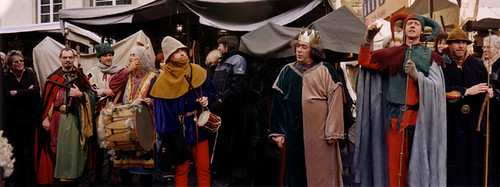
Each December, Christmas fairs sprout up all around Germany. However, few of them stand out like the medieval market in Esslingen, just a few kilometers from where I grew up.
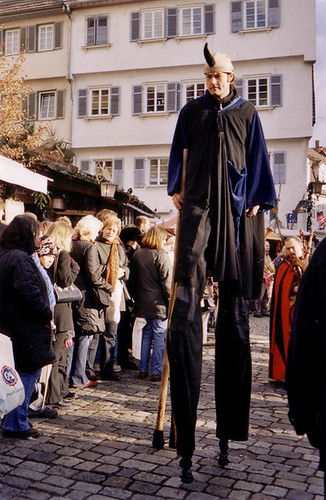
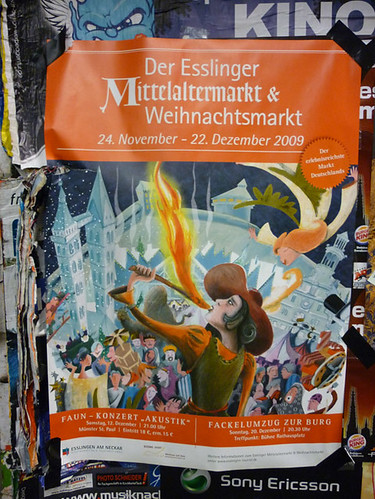
While archeological findings trace human settlements at the site of the town church back to 1000 B.C., it was around 800 A.D. that Esslingen became a market town and major center for trade on the route between Italy, Switzerland, and Northern Germany.
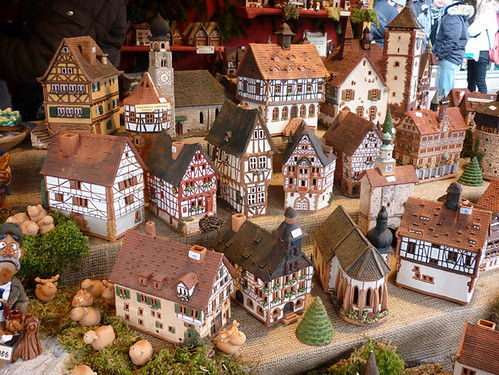
Esslingen is not Neuschwanstein, nor does this market bear any resemblance to Oktoberfest. In other words, this is not another tourist attraction, a wistful shadow of its former self whose inflated plea to be romanticized reveals its true colors as a caricature. No, this is a town where people live and breathe, and while no modern-day amenities are missing, the pace here is decidedly slower. I remember visiting friends living in ancient attics of 500 year old houses, and just climbing up five floors of creaky stairs hunched over like a giant in a gingerbread house to dodge the sloping ceilings would transport you back in time and forget about any rush you may have been in.

"The Middle Ages" has become a curse word, as in Dude, you want to go back to living in the middle ages? anytime you question modern technology and its perceived unlimited capacity to solve all our problems. I get it — who wants to live in fear of disease and under aristocratic rule? — but on the other hand, would you rather buy your accessories slave-labored and disposable from Walmart or handcrafted and ever-lasting from these guys:
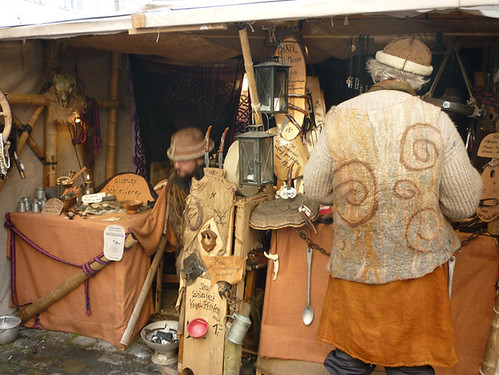
Bud Light or homemade honey wine?
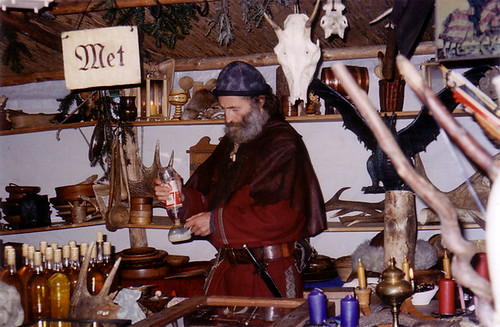
And who needs a Wii when you can have the real thing so easily and without extracting millions of barrels of oil for its production?
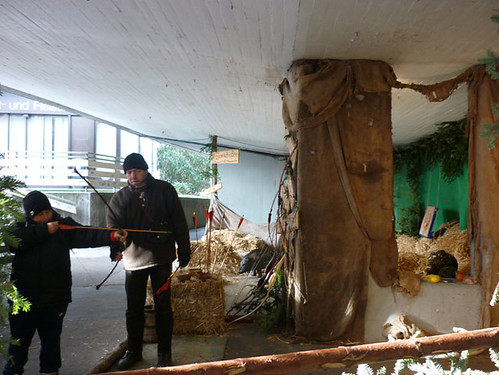
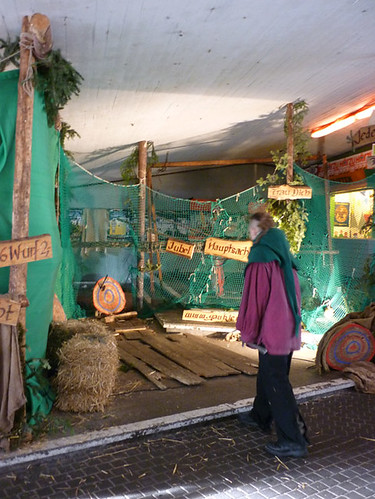
It's not that Esslingers are neanderthals removed from the comforts and conveniences of the modern world. People drive cars, use cell phones and have internet access, it's just that the volume is turned way down. While the market forces of the world are selling us the idea of a good time as a drive to the mall or that overnight product shipment from the Amazon warehouse, a walk to the market for some mulled wine, local dumplings (Maultaschen) and a chat with the neighbor spells bliss for these medieval contemporaries.
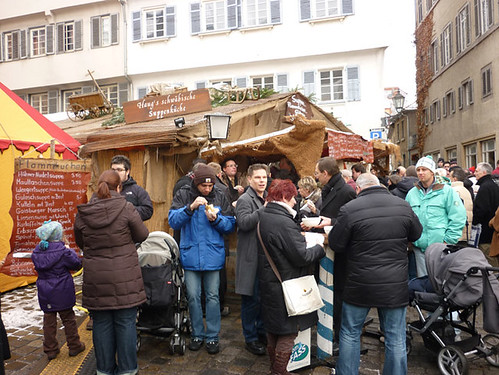
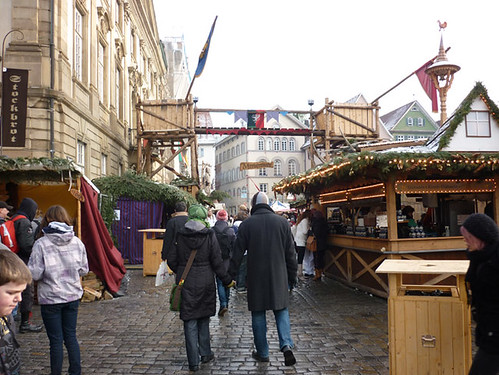
The fact that we have collectively settled on an economic system that's based on perpetual growth and endless consumption is the ultimate triumph of the Ego, temporary as that triumph may (must) be. In the name of reason, progress and prosperity, we've cast aside all those views of the world that do not satisfy our hunger for bigger, better and faster. Even our muse and creativity muscle has become supersized, packaged in wasteful entertainment spectacles from Superbowls to mega churches. Have we forgotten how simple it is to have fun and find meaning in life?
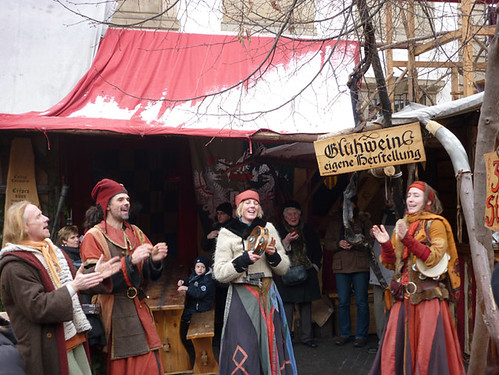
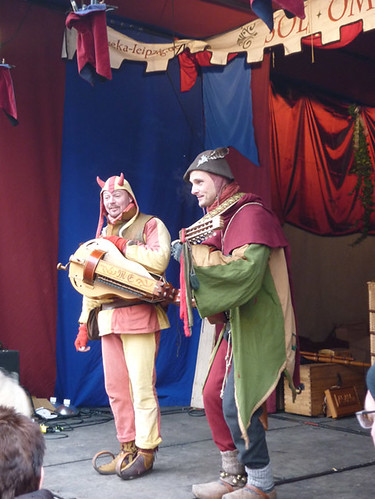
I'm not questioning our modern day technological achievements, so many of which have allowed us not only to live longer and more mobile lives, but through it enabled us to become more educated, open-minded, and at times, enlightened. Case in point, the computer we're sitting in front of. The problem however is that in our rush to the latest greatest discovery we've tended to throw the baby out with the bathwater. When Descartes said, "I think, therefore I am," we dumped mysticism, witchcraft and astrology. When we invented the automobile, we tore out our public transportation systems and quickly forgot we had feet to walk on. When communism was "defeated," we had no interest in remembering some of its better features, like community and health care for all. I find it interesting that Cuba now is the only sustainable country in the world, according to the WWF, passing both the parameters of the United Nations Human Development Index (HDI) as an indicator of human well being, and Ecological Footprint to measure the demand on the biosphere.
I don't know what the per capita carbon footprint is in Esslingen, but strolling through the fair on a cold winter day I was struck by how few generators or high-powered gadgets there were. This guy was even operating the ferries wheel by hand...
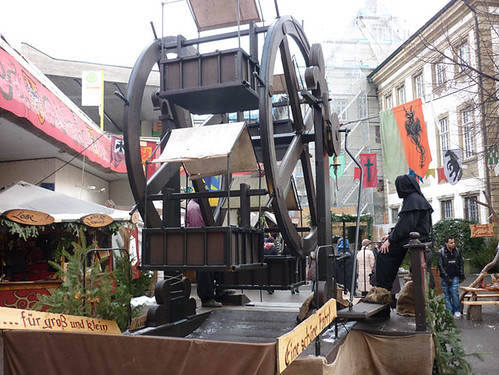
Too often these days issues get so polarized that people arguing on different sides of a spectrum force each other to lock their positions and opinions into place. It's as if our brains get into a cockfight and forget that the truth consists of too many fractals to count, many of them not accessible by the mind. Immersing myself in the medieval fair I was opened up to the idea that our past may hold some very important clues as to how we could live a sustainable future. Slow the pace. Chill out. Take a walk. Or to play with one of Michael Pollan's famous lines:
Live life. Not too fast. Mostly walk.
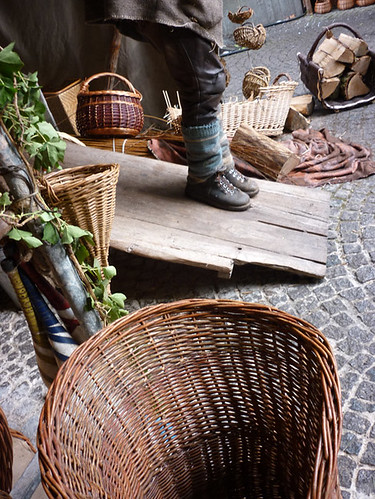
I was taught that the human brain was the crowning glory of evolution so far, but I think it’s a very poor scheme for survival.
- Kurt Vonnegut
======
crossposted at A World of Words
more photos here


